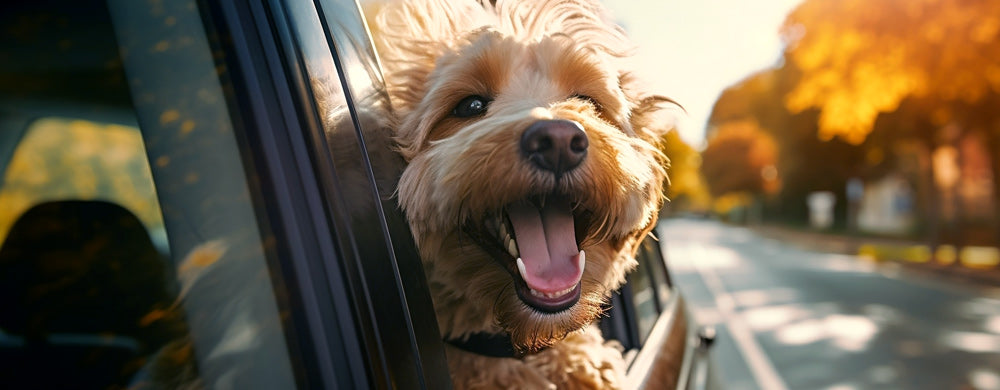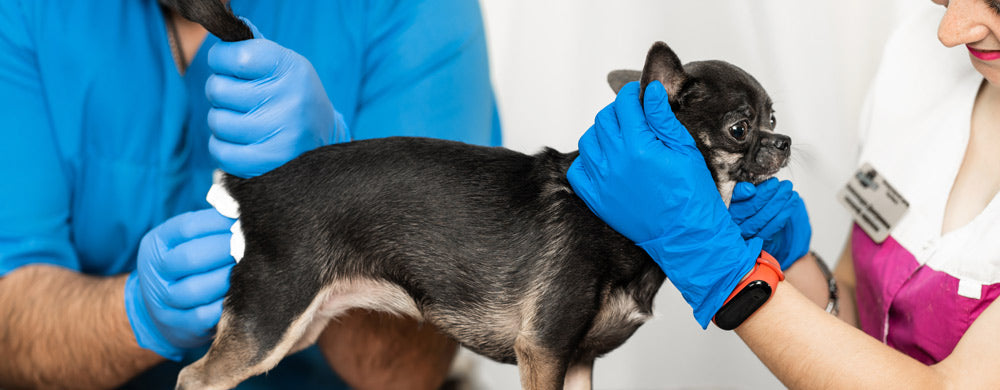Your basket is empty

How can I make walks with my dog more interesting?
September 20, 2024 4 min read
Walking your dog is one of the best ways to bond, provide exercise, and give them a chance to explore the world. But let’s be honest—doing the same walk every day can get repetitive, both for you and your dog. When walks become routine, they may no longer offer the same physical or mental stimulation, and your dog might even seem less excited about going out.
That’s where variety comes in. By changing up the type of walk you take, you can engage your dog’s body and mind in new ways, making each outing more fun and enriching. Whether it's letting them follow their nose, burning off some extra energy, or sharpening their training skills, different walks serve different purposes—and they can all contribute to a happier, healthier dog.
Here are seven types of walks to try out, ensuring that each outing offers something new and beneficial for both you and your pup!
***
1. Potty Break Walk
Ever been in a hurry, hoping for a quick bathroom break for your dog, only to find they’re more interested in sniffing than doing their business? A potty break walk might be the solution! The goal here is simple: train your dog to go on command.
How? Start by using cues like "go pee" or "go poop" every time they relieve themselves. Immediately praise and reward them. Soon, they’ll associate the command with the action. To make it even more effective, consider using a specific lead just for these walks so your dog understands when it's time for a quick break. This is especially helpful for puppies or older dogs with specific routines.
***
2. Sniffari Walk
Dogs experience the world primarily through their noses, and sniffari walks allow them to do just that. Rather than focusing on distance or speed, let your dog indulge their natural curiosity by sniffing to their heart’s content.
Dogs have over 300 million olfactory receptors (compared to our mere 5 million). They use their nostrils independently to detect the origin of a scent, and they exhale through the sides of their nose to maintain airflow, building up concentrations of smells. This sensory exercise provides incredible mental stimulation. Using a longer lead or letting them off-lead in a safe area will give them more freedom to explore. Though these walks may not cover much ground, your dog will be just as tired and satisfied as they would after a more intense exercise session.
***
3. Exercise Walk
For dogs with high energy or those who need a physical workout, an exercise walk is a must. Whether it’s a power walk, running alongside you, or even trotting while you cycle, the aim is to get their heart rate up.
For adult dogs, try to keep the walk at a pace and intensity that raises their heart rate for at least 20 minutes. If you have a puppy or a senior dog, be mindful of their limitations. Puppies' bones are still developing, so shorter walks are better, and older dogs may need more gradual increases in exercise intensity.
***
4. Training Walk
Training walks are all about reinforcing good manners and commands. Instead of going for a stroll without structure, use this walk to practice commands like "sit," "stay," "heel," or "leave it." This is also a great opportunity to work on your dog's behaviour in different environments.
You can integrate training into everyday situations. For example, instead of looking at your phone while waiting for a friend to join you and your dog on a walk, practice commands like "spin" or "down." When you see a cat or another dog in the distance, ask your pup for an eye contact. This ensures your dog remains responsive in real-life scenarios, even when distractions arise.
***
5. Socialisation Walk
Socialisation isn’t just for puppies—older dogs can benefit too! A socialisation walk exposes your dog to new environments, people, sounds, and even surfaces. This helps build their confidence and ensures they remain well-adjusted in different situations.
Benji, for instance, had never seen many hot air balloons until we took him to the Bristol Balloon Fiesta. We also bring him to places like caves or boats to experience different surfaces and movements. Regular exposure to new experiences strengthens your dog's adaptability, making them calmer and more confident.
***
6. Different Dog Walker Walk
Dogs can benefit from experiencing walks with different people. Each person walks a dog differently, creating a unique experience for your pup. So, if you’re always the one walking your dog, encourage other family members to step in occasionally. Not only will your dog enjoy some variety, but it also gives you a break from the daily routine.
Alternatively, if you’re pressed for time or looking for a new twist, hiring a dog walker once or twice a week can be a great solution. The key is to keep things varied so both you and your dog stay excited about walk time.
***
7. Change of Scenery Walk
If you and your dog are feeling stuck in a rut, a change of scenery walk is the perfect way to mix things up. This could be as simple as taking a new route on your usual walk or venturing out to an entirely different location.
You don’t have to go far—just a few streets away or a nearby park will do. Apps like AllTrails can help you find dog-friendly paths, and if you’re in the UK, the National Trust website is a great resource for scenic routes. For us, discovering the Bristol Barkers page gave us plenty of new walking options around the city. A new environment will not only stimulate your dog but refresh your outlook on walks as well!
Also in Pet Advice

Should You Add Water to Your Dog’s Kibble? Here’s What the Science Says
August 14, 2025 7 min read
Should you add water to your dog’s kibble? Discover the science-backed pros, cons, and better alternatives like bone broth and fresh food to improve hydration, digestion, and overall canine health...

DIY Frozen Dog Treats Your Pup Will Love
June 27, 2025 4 min read
Summer heat can be dangerous for dogs, making hydration more important than ever. Learn how to spot signs of dehydration, boost your pup’s water intake, and create fun, frozen recipes to keep them happy and healthy all season long.

Why Is My Dog Scooting? Common Causes and How Diet Can Help
May 09, 2025 4 min read
If your dog is scooting or smells fishy, it could be due to blocked or irritated anal glands. Learn what causes blocked anal glands, which dogs are most at risk, and how simple dietary changes—like adding fibre and anti-inflammatory nutrients—can help prevent recurring problems.
